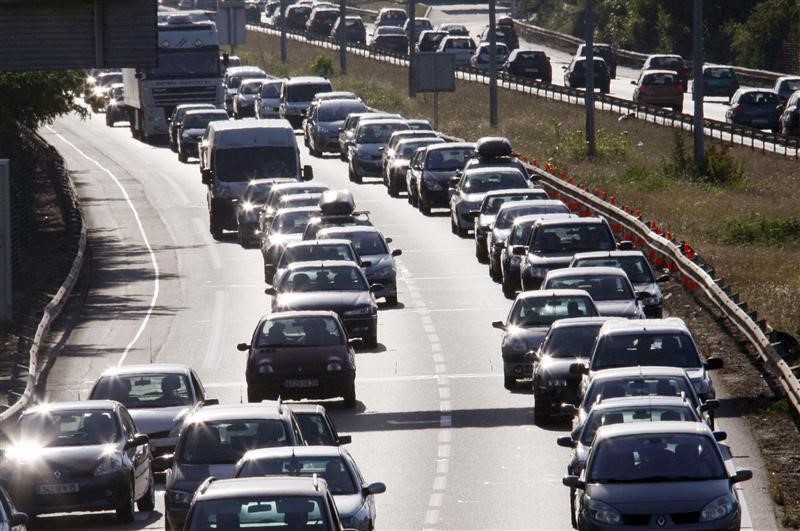By Valerie Volcovici
WASHINGTON, July 22 (Reuters) - The United States will miss its emission-reduction targets under the Paris climate agreement if 19 pending natural gas pipelines are built across eastern states, a report published on Friday by environmental groups said.
Oil Change International and 11 other organizations found that 19 proposed pipelines due to move natural gas from the shale fields of Pennsylvania, Ohio and West Virginia to states from Louisiana to New York would unlock at least 15.2 billion cubic feet per day of new natural gas production.
This would lock the country into more natural gas-fired electricity rather than renewable energy, and cause the United States to miss a target of cutting greenhouse gas emissions 83 percent from 2005 levels by 2050, the report said.
"Our calculations show that the rise in gas consumption projected by the EIA (Energy Information Administration) would alone lead to emissions that would surpass the current long-term U.S. climate target by 2040," it added.
Owners of the pipelines cited included Spectra Energy (NYSE:SE) Co SE.N , Williams Cos Inc WMB.N and EQT Corp (NYSE:EQT) EQT.N .
The study comes as opponents of hydraulic fracturing, or fracking, move from targeting drilling sites to planned pipeline routes. By limiting the capacity for transporting carbon-based fuels, they hope to reduce the number of projects developed.
Environmentalists and landowners in states like New York have helped to block or slow down construction of proposed pipelines, such as the Pennsylvania-to-New York Constitution Pipeline. companies and building unions have raised concerns about this opposition to pipeline construction, and accused protesters of being ill-informed about the need for infrastructure.
American Petroleum Institute President Jack Gerard told reporters in May he wants to take "the shrill politics out of it."
The report recommends that the Federal Energy Regulatory Commission, which reviews pipeline construction applications, and other federal agencies weigh the climate change impacts of new infrastructure before approving projects.
This so-called "climate test" was a position that Democratic presidential candidate Bernie Sanders had advocated, and resembles the criteria President Barack Obama applied when he rejected TransCanada Corp's TRP.TO Keystone XL pipeline.
Sanders supporters negotiated its inclusion in the Democratic Party 2016 policy platform with representatives for presumptive party presidential nominee Hillary Clinton, who had previously called natural gas a bridge fuel between coal and renewable energy.
"This should be a wake up call to anyone promoting natural gas as a bridge to a clean energy future. Put simply, it's not," said Stephen Kretzmann, Oil Change International director.
